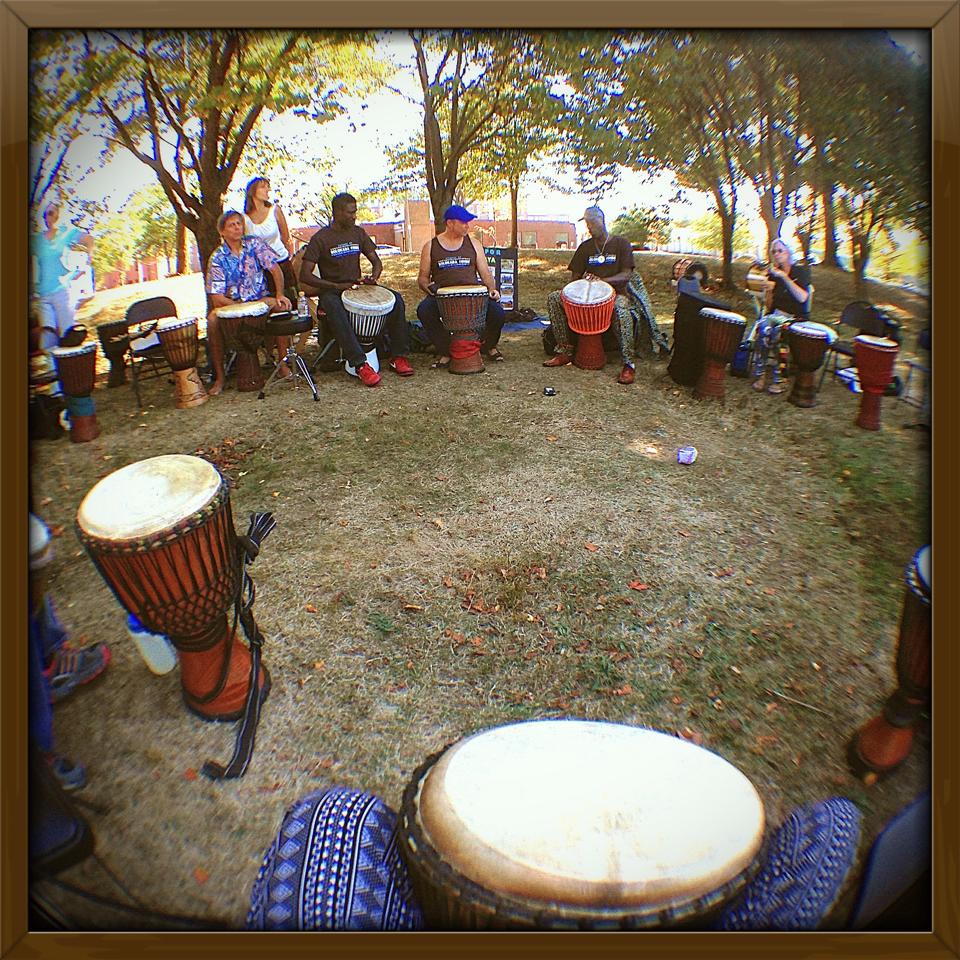Groove and the pocket. The power of simplicity.
When you are playing traditional style drumming, especially West African djembe based music you “hold” parts. Everyone is not playing whatever they want constantly. Each djembe player and each dunun player has basic set parts.
The parts are part of alchemic formulas from who knows where originally. The thing is, if you learn and play these parts and arrangements you can have tremendous fun and even spiritual experiences that goes beyond words and descriptions. Those of you who already play traditional understand this.
It is something that does not happen in a jam or at a drum circle. I am not bashing drum circles and this is not about drum circle bad traditional good. (so please do not write comments about how bad drum circles are)! This is just explaining about traditional drumming styles and why it is so good to play them in my opinion.
 A lot of us Americans and westerners don’t really get this so I would like to talk about it a little bit.
A lot of us Americans and westerners don’t really get this so I would like to talk about it a little bit.
Most of us think to be creative we have to create or constantly change our parts that we are playing. We have to “do”. We have to change. In doing so we make it “ours”.
And we come from a more is better society.
However, when you play traditional style each person holds a part and only one person solos or plays the lead at a time. In this case, less is more. Holding is not really the correct word because the part we are playing is a live entity and
not being held if and when you really get into it and let it channel through you.
If we re think about support parts and accompaniment parts in this way then the whole picture changes. They seem to be simple but a lot can happen with basic parts.
When you think of a trap set player playing the same beat over and over, how does he make it funky? It’s the use of space. And a lot of what he does not do, as well as what does. It therefore becomes about simplicity and playing/ staying in the pocket. And playing accompaniment is exactly the same.
In hand drumming, we can mistakenly can think that the solo is the fun part and wait for our turn to solo and not really get into playing the accompaniment part because what fun is it to play the same thing over and over again? I constantly see players in many different styles of drumming put out full power solos but then when it is their turn to hold the accompaniment, nothing is happening.
If we can get out of the ego and make the accompaniment part a hypnotic mantra, a groovy repetition then everything changes and everyone connects in magical ways.
The key is to take your part and make it groove by putting your self, your soul and your positive intention into it. Play your part. Explore your part, not going crazy but by letting your part bubble and groove. A suggestion is to look at and feel your part like you are riding it.
Just having the concept that “I am going to make my part groovy and funky” will change everything! If you let your part and your playing breathe this is a first step. Drumming is best when it is yin and yang. Tension and release. sound and air.
When you practice at home, try playing basic parts and see what it is like to push and pull, play soft and hard, fast and slow. You can have a lot of fun with out changing the pattern at all in terms of the notes you are playing. There is so much you can do with a simple part in terms of dynamics, funk and feel! Ad of course feeling the space.
I have noticed in jam sessions that when everyone is playing at once and not listening to each other all the space is filled. What if we instead all looked to create empty space instead of filling space?
The use of space is key and essential in being funky. It is the space around the notes that make the notes useful. If there are too many notes being played by you or everyone or anyone else then all the space is filled. It’s like there is too much space in your rhythm house. Lets get funky!
I believe that in keeping it simple and in the pocket, we can really excel and be just as creative as soloing.

